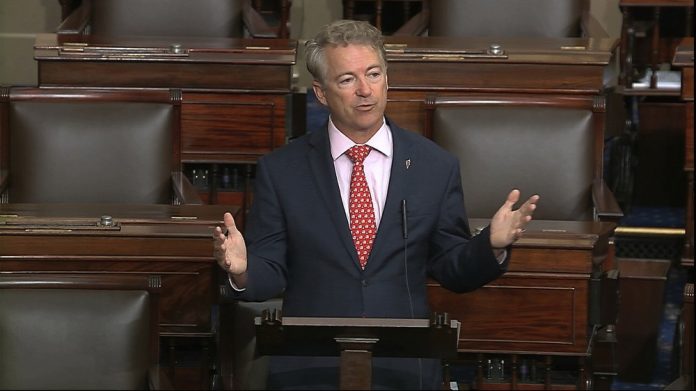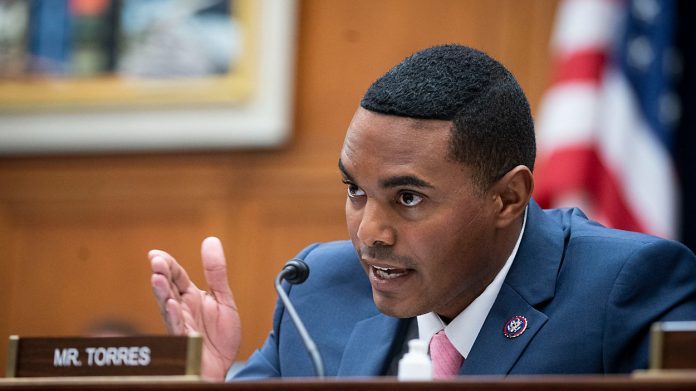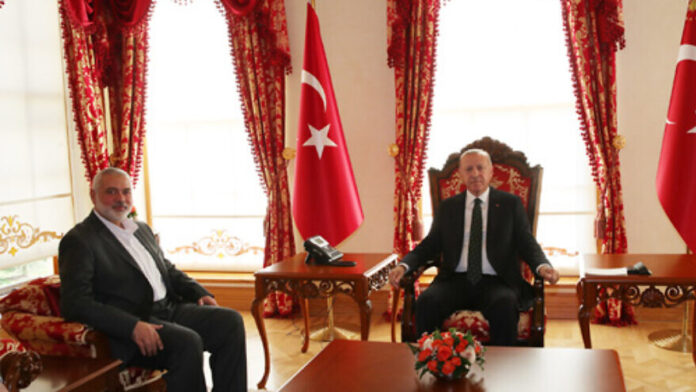Misguided Diplomacy and the Path Forward for Israel
The recent brazen attack by Iran against Israel, while failing in its destructive intent, has unveiled a stark reality that cannot be ignored. It is clear that a forceful response from Israel is not only justified but necessary. The advice from the U.S. administration, urging restraint, seems out of touch with the exigencies of maintaining a strong defense posture in the face of blatant aggression. Iran’s failed attempt to kill thousands of Israelis must not be met with mere diplomatic hand-wringing; it demands a decisive and tangible reaction.
Iran’s audacious attack, involving over 300 drones and missiles, aimed to inflict catastrophic damage on Israeli soil. Yet, the Iron Dome, a testament to Israeli ingenuity and resolve, thwarted this attempt, resulting in zero casualties from this barrage. However, the absence of Israeli casualties does not diminish the severity of Iran’s intentions. To overlook this as a failed attempt and nothing more would be to misunderstand the nature of the threat Israel faces. The regime in Tehran, driven by a dangerous blend of ideological fervor and regional ambitions, attempted nothing less than a mass casualty event.
This incident starkly illustrates that Iran, despite its pretensions and bluster, is a third-rate military power whose capabilities do not match its malicious intent. The mullahs’ regime has shown that its strategy is one of terror and chaos, lacking in both moral standing and military precision. Their repeated failures should not be a cause for complacency but a signal to Israel and its allies that the threat Iran poses, while serious, can be countered effectively.
The necessity of a robust Israeli response goes beyond simple retribution. It serves a strategic function, demonstrating to Iran and its proxies that their actions have severe consequences. A decisive Israeli strike against military targets within Iran would serve as a powerful deterrent, signaling not only to Tehran but also to its allies and proxies that their patron is weaker than presumed.
Furthermore, by striking back, Israel would send an unambiguous message to the international community that it has the will and the capability to defend itself. This is not just about safeguarding current security; it is about deterring future attacks. Iran’s leadership must be shown that their calculations in targeting Israel are fundamentally flawed and that their continued aggression will only result in increasing isolation and damage to their own interests.
The recent admonition from President Joe Biden to Israeli Prime Minister Benjamin Netanyahu, urging him to “Take the win” and refrain from retaliating against Iran, reveals a troubling continuity in U.S. foreign policy. This approach, reminiscent of the previous Obama administration’s strategy, involves a preference for negotiation and appeasement rather than firmness in the face of aggression. Unfortunately, this strategy has historically proven ineffective and even counterproductive, particularly in dealings with the Iranian regime.
Since President Obama took office in 2009, the U.S. policy toward Iran has seemingly been to coax Tehran back into the global community through economic incentives and diplomatic engagement. This approach included lifting sanctions, unblocking frozen accounts, and overlooking Iran’s belligerent actions in the region, all under the guise of fostering a more peaceful, cooperative relationship. However, the reality on the ground tells a markedly different story. Iran has exploited these overtures not to join the mainstream of nations as a responsible actor but to bolster its support for regional proxies and to suppress internal dissent.
The fruits of such appeasement are bitter. Iran’s financial gains from normalized trade and diminished sanctions have not translated into betterment for its population but rather have been channeled into the machinery of terrorism and the brutal crackdown of its own people. Furthermore, Iran’s increasing alignment with adversarial states such as Russia, Syria, and China starkly illustrates its global stance and strategic priorities. This pivot towards countries that challenge Western influence underscores a commitment not to peaceful integration but to opposing it.
Israel, observing these developments, finds itself at a crossroads. The Biden administration’s advice to avoid retaliation not only undermines the immediate need to deter future aggression but also reflects a broader misunderstanding of the strategic landscape. Israel’s security concerns are not theoretical but existential, and its responses are calibrated not just to punish but to prevent. Iran’s continued aggression, fueled by financial inflows from appeasement policies, leaves Israel with little choice but to consider unilateral actions to safeguard its nation.
Henry Kissinger once described Iran as a cause rather than a country, a characterization that captures Tehran’s ideological drive over national welfare. Against this backdrop, Israel must navigate a path that ensures its security and regional stability, potentially diverging from current U.S. foreign policy directions. The situation demands not passive victories but active deterrence strategies.
Israel is thus presented with a unique opportunity to redefine its security paradigms and perhaps prompt a reevaluation of international approaches to Iran. It must prioritize its national imperatives, possibly requiring actions that are at odds with the preferences of its closest ally, the United States. As history has shown, appeasement has not and will not curb the Iranian threat; decisive action and strong leadership are required. In this context, Israel must lead with clarity and resolve, demonstrating to Iran and the international community that its tolerance for threats is limited and its capacity to defend its interests is undiminished.
It should be noted that during the attack from Iran, the technological prowess and strategic foresight of Israel and the United States were put on full display, marking a significant chapter in modern military defense and international politics. This episode not only highlighted the limitations of Iran’s military capabilities but also shined a spotlight on the effectiveness of the U.S. and Israeli defense strategies, which have long been under development and refinement.
Iran’s recent military actions, which saw most of its drones shot down and some missiles failing catastrophically on their launch pads, illustrate a critical vulnerability: its reliance on quantity over quality. This approach not only revealed Iran’s military inadequacies but also validated why Iran prefers to engage through proxies rather than direct confrontation. Proxies allow Iran to wage asymmetric warfare without the direct costs associated with the loss of Iranian lives, thereby maintaining a facade of strength while outsourcing risk.
Israel’s defense systems, developed with significant American input and assistance, have proven their worth as some of the most effective in the world. This technological edge is so pronounced that it has redefined defense capabilities globally, much like the adage from American football that “Defense wins championships,” which now finds a parallel in national security strategies.
Reflecting on historical precedents, the strategic defense initiatives reminiscent of Ronald Reagan’s 1983 “Star Wars” program—which was initially mocked by the media—have clearly evolved into a critical component of America’s military doctrine. These initiatives have demonstrated their value in real-world applications, providing not just defense but also a significant deterrence factor against hostile actions.
Furthermore, the involvement of the United States in this particular conflict marks a pivotal shift in its military engagement strategy under President Joe Biden. Despite his often critical stance towards Israeli policies under Prime Minister Benjamin Netanyahu, Biden’s administration played a crucial role in neutralizing the threat posed by Iranian weaponry. This decisive action represents a practical application of Teddy Roosevelt’s philosophy to “Speak softly and carry a big stick.” President Biden, adhering to this principle, offered minimal rhetoric but substantial military response when Iran escalated its aggressive postures.
This military engagement by the U.S. was unprecedented in its direct nature, signifying a new era in U.S.-Israel relations where American military assets are actively deployed in defensive operations supporting Israel. It illustrates a robust commitment to international security and a readiness to act against aggressions that threaten stable geopolitical landscapes.
The significant involvement of France and Britain alongside Israel is a testament to the strengthening of strategic ties that transcend traditional geopolitical boundaries. This collaboration is a game changer. It not only enhances the military efficacy through shared intelligence and coordinated defense strategies but also serves as a potent symbol of unity against aggression. Such partnerships are proving to be a force multiplier, adding a robust layer of deterrence that could reshape security calculations across the region.
Even more historic is the active defense cooperation involving Jordan and Saudi Arabia in support of Israel. This participation is particularly noteworthy given the complex web of relations and the often tenuous peace that has existed between these nations and Israel. That Jordan and Saudi Arabia, two influential Arab states, have opted to side with Israel in a clear stance against Iranian aggression speaks volumes about the shifting allegiances and the common recognition of greater regional threats.
This cooperation could be the harbinger of deeper economic and military integration in the region. The potential for a formal treaty between Saudi Arabia and Israel, which seemed imminent before the Hamas led brutal massacre on October 7, clearly displays the strategic pivot towards normalization of relations, as envisaged by the Abraham Accords. This movement towards normalization, driven by mutual interests in security and economic prosperity, marks a significant departure from past animosities.
The involvement of Arab nations in defending the Jewish state is a powerful counter-narrative to the divisive rhetoric often perpetuated by extremist factions within these countries. It challenges the long-held antagonisms that have fueled conflicts in the region and offers a new narrative of potential unity and cooperation. This change might even influence global perceptions, particularly among those who have harbored anti-Semitic sentiments under misguided notions of solidarity with extremist causes.
The realization that some Arab leaders now visibly trust and cooperate with Israel more than they align with radical elements within their own religious group could have far-reaching implications. It not only isolates the extremists but also encourages a more pragmatic approach to Middle Eastern politics, based on shared interests rather than divisive religious or ideological differences.






















